|
|
|
I DON'T EAT MUCH MEAT NOWADAYS LEE. You mean flesh? HUH? 'Meat' is just a term used to normalise it and make it all sound nicer than it is. Like 'pork' is used for pig flesh. And 'beef' for cow flesh. But no one wants to admit they're eating flesh. RIGHT. Flesh from a corpse. CHRIST. Fleshy-flesh-flesh! OK! It's animal flesh. Like it would be human flesh if we ate humans. OK OK I GET IT. PEDANT! I DON'T EAT MUCH FLESH NOWADAYS LEE! That's great! ONLY FISH. Fish is flesh. DOES THAT MEAN I'M PESCATARIAN? No it means you kill fish. OH... I used to too. Lots and lots of fishes. WHAT CHANGED? I stopped. WHY? Keep reading and you'll find out... So you eat the little fishes do you? YEP! You make it sound like a good thing. THEY'RE GOOD FOR MY BRAIN! Fish? I read that once too. It was soon debunked though. Fish are actually really bad for you. FISH ARE? Yes. But we'll come to that in a moment... First off... did you know more fish are killed for food each year than ALL other animals combined? SO? THEY'RE JUST FISH! THERE'S TONS OF THEM! Well there are tons of them however there won't be for long seeing as we kill and eat 0.8 - 2.7 TRILLION of them a year! The oceans are home for up to 80% of all life on earth yet we kill and eat so many fish that research has predicted if we don't stop, there will be no fish left to catch, resulting in barren, fishless oceans by 2048! WOW! That's only 26 years away! Within our lifetime. ARE YOU GOING TO THROW LOADS OF STATISTICS AT ME AGAIN? No, I promise. GOOD. Did you know 50% of the fish consumed around the world today are actually farmed? OI! Sorry. FARMED? Yep. 'Aquafarming' or 'aquaculture' it's jovially called. It happens all over the world in coastal ocean waters, freshwater ponds and rivers, and even on land in tanks. TANKS? Water tanks. Not World War 2 tanks. I WAS GONNA SAY... There are 'intensive farms' where trillions of fish are confined within small containers, nets or concrete tanks for their entire lives - something that's particularly unnatural for fish - particularly species of fish which would otherwise migrate thousands of miles, like Wild Salmon (which are already on the brink of extinction I might add). These farms have around 10 'pools', filled to the brim with fish (so no room for them to swim around freely and explore their natural habitat). The water is full of fish excrement (which causes many diseases, infections and parasites), artificial chemicals such as antibiotics which attempt to combat these diseases and keep the fish alive (and because fish become so stressed in these conditions, their immune systems shut down). They are also used to make the fish grow faster and unnaturally larger however, overuse of these chemicals causes antibiotic resistant infections in those consuming them. US? You. Forced into these conditions, these fish are prone to physical injuries such as fin damage or spinal deformities and any of these 'sick' or 'unhealthy' fish are removed from the tank and either slammed against walls (as is, I believe, the 'quickest' method to kill them) or are hit over the head before being bled out. The 'healthy' fish are gassed via carbon dioxide, electrically stunned, have their gills sliced without stunning or are simply left to suffocate. All in all, fish are treated horrifically in aquafarms. THIS JUST AFFECTS THE FISH IN THE FARMS THOUGH RIGHT? Nope. Wild fish swimming through or around these farms are also adversely affected by the faeces, diseases and parasitic infections that come with them. Wild salmon can spread sea lice, a parasite that latches onto salmons’ bodies and feeds on their flesh and blood, causing painful lesions and sometimes mass death. They can also evolve resistance to the antibiotics. Other infections include whirling disease, which infects salmon and trout populations and crayfish plague, a water mold that infects and kills crayfish within weeks. Some fish manage to escape into the ocean and breed with wild fish populations although their weak genetic composition results in offspring who die off quickly, threatening the wild population’s existence. HOW ARE THE FISH CAUGHT EXACTLY? There are several methods used, (it's a bit dull this bit but bear with me), the most common being: Longline fisheries - 40 miles of monofilament fishing line dangling thousands of individually baited hooks, used vertically or horizontally, to ensnare fish such as tuna and swordfish (a method that has caused their decline by 90% since industrialised fishing began) Other methods include: Beam trawlers - heavy duty nets attached to a steel beam holding the nets open - the belly of the net is made of chains which are dragged along the seabed disturbing the sand and sediment in order to scoop up whatever it can Purse seining - a vertical net 'curtain' used to catch single-species fish like tuna and mackerel Otter trawling - a large fish net that is dragged behind a research vessel along the sea bottom or the pelagic zone, used to catch round fish living above the sea bottom such as whiting and cod Bottom trawling - a practice that herds and captures anything on the seabed, like ground fish or crabs, by towing a net along the ocean floor Gill nets - walls of fine netting in which fish become snared, often by the gills and then suffocate because they can't breathe or they remain trapped in the nets for hours until they're dragged from the sea, being mutilated in the process These nets cause the majority of deaths of hundreds of thousands of marine mammals. Trawler vessels are used in almost every country across the world. Generally used for small scale fisheries but in some cases, trawlers also go deep sea fishing. Commercial fishers use vast factory-style trawlers the size of football fields to catch fish. Miles-long nets stretch across the ocean, capturing everyone in their path. 'EVERYONE'? Yes. Everyone. IS THAT THE 'DULL' BIT OVER? Yes. Yes it is. Every time these methods are used, trillions of non-target species of fish and marine life who are simply in the wrong place, at the wrong time, are also dragged from the sea, alongside the fish these workers are trying to catch. BYCATCH? Yes, it's called bycatch (how did you know that?) and it causes large-scale death of marine life and ecosystem imbalance, with many predatory fishes like sharks being accidentally caught in fishing nets. In addition to the turtles, juvenile fish and invertebrates that get swept up in trawling nets, phytoplankton (which absorbs carbon) and deep sea corals are hidden victims of trawling. THEY'RE IMPORTANT AREN'T THEY? Just a bit. Phytoplankton are the base of several aquatic food webs and provide food for a wide range of sea creatures. In a balanced ecosystem, they play a vital role in the natural carbon cycle, helping to regulate the amount of carbon dioxide (CO2) in the atmosphere and keep the Earth's climate in balance. Deep sea coral forests, are some of the most biodiverse ecosystems with high degrees of endemism (species found only there), and can take centuries to form. But when a trawler runs over them again and again to catch fish, they’re destroyed, and so is the whole community that had formed around them. WHY DOES ALL THIS HAPPEN LEE? Because, again, we pay for it to. Because we keep buying and eating fish. And crabs. And lobsters. And prawns. And squid. And because this 'business' makes certain people A LOT of money and A LOT of profit... no matter what the cost. And guess what they use to feed those farmed fish? FISH FOOD? No. Fish. FISH? THEY FEED FISH TO FISH? Yep. Huge amounts of feed, made from wild fish harvested from the sea. Many farmed fish are carnivores like sea bass and salmon and are fed fish that are caught in the wild. So when you're buying farmed fish, you're also causing the suffering of wild fish too. Farmed salmon in particular are fed pellets made out of (put your fork down) ground-up chicken feathers, poultry litter (poo!), fish oil, smaller fish, genetically modified yeast, soybeans and chicken fat. This is what the fish you eat, eat. HANG ON, SO WE'RE TAKING FISH FROM THE SEA AND KILLING THEM, TO FEED TO FISH FROM THE SEA? Yes. So we can kill and eat THOSE fish. Insane isn't it? All when we simply don't have to. All to satisfy something as unimportant and trivial as our 'taste buds'. THEY'RE KILLED QUICKLY THOUGH RIGHT, THE FISH? If you call being impaled, crushed, frozen (an excruciatingly painful method that is supposed to stun the fish yet is rarely effective), suffocated, sliced open, bludgeoned, eviscerated, beheaded, gutted, flayed or boiled - all whilst still fully conscious - 'quickly' then yes. The reality of it, is that fish have long, slow, painful deaths lasting over very long periods of time and in fish slaughterhouses, many fishes bleed out for several hours before they die. Some fish can even remain conscious for 20 to 40 minutes after being gutted. What’s worse is that many commercial-grade fishes are never even consumed. About 2 billion pounds of fish are discarded every year in the U.S. alone. WHAT A WASTE! Of life yes. Imagine being born into existence, trapped your entire life and then violently and needlessly killed at the end of it? Wouldn't you rather not exist? Fish are treated as objects rather than individuals and are cared for a lot less than the other animals in agriculture (and that's saying something considering how badly they are treated) They are all however exploited, abused, tortured and needlessly murdered. THEY'RE NOT AWARE OF IT THOUGH? Of course they're aware of it! ARE THEY THOUGH? HOW DO WE KNOW THAT? We don't. Scientists do. There are many, many studies and trials proving that fish are aware of pain and suffering. WHERE ARE THESE 'STUDIES' THEN? How come 90% of being vegan is just sending conclusive, peer-reviewed scientific studies to online wallies, when they can just as easily Google them themselves? It takes seconds to find this stuff! Look... fish can communicate, make tools, have emotional states, cognitive abilities and are self-aware, responsive and conscious. They have social hierarchies, form close friendships between different species and community bonds. They have a highly developed nervous system like land mammals and they have 'access consciousness' - the ability to have thoughts and memories - to think about things past or present. In the peer-reviewed journal, Fish and Fisheries, biologists wrote that fish are "steeped in social intelligence, pursuing Machiavellian strategies of manipulation, punishment and reconciliation, exhibiting stable cultural traditions, and cooperating to inspect predators and catch food." THEY HAVE A 3-SECOND MEMORY THOUGH? That's a myth. WHAT? It's a myth! There is zero scientific evidence to prove that fish have 3-second memories. It's just a silly assumption we make, based on cartoons of goldfishes spending every day in the same circular bowl and therefore experiencing the same things over and over again. They endure monotony and boredom - not a failing memory. They know they're bored. However there IS significant scientific evidence which shows fish have great memories and can even remember things for up to 5 MONTHS! (which is more than can be said for the average human - I can't even remember if I've had lunch today or not?) Scientific studies aside, just spend some time watching a fish! You will see clear examples of sentience. SENTIENCE? Yes. That means they are able to see or feel things through the senses. They have the capability to feel pain (which is why they avoid unpleasant experiences like electric shocks, high temperatures or harmful chemicals) as well as experience happiness, pleasure, fear and excitement for example. As a child, I had two pet goldfish (called 'Maggie' and 'Brenda'!) who I adored and I used to spend hours watching them and getting to know them. Seeing what things they loved and didn't love, what made them happy or sad. It doesn't take long before you realise there is a 'someone' inside that tiny body of theirs. We just need to take the time to connect with them and to recognise the signs. A 'SOMEONE'? THEY'RE A FISH! They're sentient, therefore they are a someone. They are individuals, each with their own, unique experiences, their own emotions and their own lives. They are a someone. Every fish, just like every bird, gerbil, guinea pig, dog or cat, has their own personality, habits, likes and dislikes. Some are happy, some are grumpy. They get stressed, they get annoyed. Some are chaotic, some are calm. Some fish are excitable, some get depressed. Up to a quarter of fish on fish farms float listlessly at the surface of the water of their enclosures. A study found that these fish were found to have elevated levels of cortisol, the hormone related to stress, and their brain chemistry was very similar to that of a human suffering from depression. Fish kept in tanks will sometimes come close to the glass because they recognise you, are curious about you or may want attention from you. They swim around like crazy and do tricks, they recognise each other after spending time together, they play with each other, they hide and they remember what excites them or what hurts them. They may even swim away and hide as soon as you appear to avoid being hurt or caught. Dive guides have been known to name friendly fish who follow divers around and enjoy being petted, just as dogs and cats do. Fish are highly intelligent animals man. They do what animals do. THERE ARE STUDIES TO PROVE ALL THIS? Yes! TONS of them! One example was a tank study with a group of fish, where a leaver was set up inside which, whenever it was pressed, would release food into the tank. Once the fish discovered the leaver did this, they kept returning over and over again to pull down the leaver in order to get more food. What’s even more impressive is that the fish learned to press the leaver at a specific time of day. Researchers in charge of the study, adjusted the leaver so that it would only release food at a specific time of the day. The fish learned this and so came back at that specific time to try pressing the leaver! SO FISH CAN... TELL THE TIME? I guess they can yes! There were other, less enjoyable, studies where Rainbow trout had been injected in the lips with acetic acid (a noxious substance). The trout were then observed rubbing their lips on the substrate of the tank and displayed a rocking behaviour, as well as a faster breathing rate. It also took them 3 hours before they could begin feeding again. In a separate study, when morphine was administered to the fish, these effects were reduced. WOW! They also recognise sounds! SOUNDS? Yep. Fish communicate through a range of low-frequency sounds - from buzzes and clicks to yelps and sobs. These sounds, which we can only really hear using special instruments, communicate emotional states such as alarm or delight and help with courtship. Atlantic croakers, for example, croak when they are frightened. You can listen HERE. Scientists also use sound for communication between fishes like mating behaviour, the detection of prey and predators, orientation, migration and habitat selection. There was another study where researchers played a specific sound underwater every time a group of fish were fed. The fish were then released into the wild. Five months later, the sound was played again in the water and the fish returned to their original feeding place! These tests have been done before to move fish back to areas with severely damaged coral reefs. The fish hear the sound they associate with a healthy coral reef and so they return to it. CLEVER THAT. I know right? You can't do all that with only a 3-second memory can you? SENTIENCE? Oh dear... HOW DO YOU KNOW THEY FEEL PAIN THOUGH? THEY HARDLY SCREAM DO THEY? Just because we can't hear them or understand them, does that mean they can't suffer? Just because they're silent and can't vocalise their pain like a cow or a pig can, does that mean their suffering doesn't exist? ERM NO? If they didn't feel pain, why are they given antibiotics and painkillers (Analgesics) to reduce the symptoms of pain that they would otherwise show? The American Veterinary Medical Association’s guidelines for the euthanasia of animals say that, "Suggestions that finfish responses to pain merely represent simple reflexes have been refuted. … the preponderance of accumulated evidence supports the position that finfish should be accorded the same considerations as terrestrial vertebrates in regard to relief from pain." Fish have an elaborate system of sensory cells around their mouths - the very place anglers' hooks are embedded. Are you telling me that doesn't hurt a living animal? Fish also have 'endogenous opioids' which are substances produced in the brain in order to reduce pain. Why are they there? If these animals don't experience pain? Victoria Braithwaite, Penn State professor of fisheries and biology, has spent decades studying fish and said, “in our experiments we showed that if we hurt fish, they react, and then if we give them pain relief, they change their behavior, strongly indicating that they feel pain.” She goes on to say, “there is as much evidence that fish feel pain and suffer as there is for birds and mammals.” A scientific panel for the European Union also concluded that the evidence shows that fish DO feel pain Watch this short clip entitled 'Silent Scream' from PETA (it's not as bad as it looks):
Fish have no legal protection from cruel treatment and so are treated worse than any other animal living (or dying!) today. These beautiful, complex beings are integral to the earth's ecosystem yet we treat them like mere objects whose only purpose on this earth is to feed us. But guess what? WHAT? THEY AREN'T HERE FOR US. Just like any other animal ISN'T here for us - we need to STOP thinking that way. They are NOT our property, nor are they ours for us to be able to do whatever we want to them. WE BREED THEM SO WE CAN EAT THEM. Your mother bred you. Can we eat you? ERM NO! Why not? Your cat was bred, can we eat her? IF THEY'RE NOT HERE FOR US, WHAT ARE THEY HERE FOR THEN? What are YOU here for? ERM... To kill other animals? To destroy the planet? To help start global pandemics? You don't know do you? What you do know however is that you aren't here to be abused, slaughtered and eaten, despite there being other animals more than capable of doing so. So if we wouldn't like that being done to us, why do we feel we can do that to another species of animal? IT FEELS A BIT MAD TALKING LIKE THIS ABOUT FISH... Yet here we are. Fish are animals. And you abuse them. I DON'T! You pay for them to suffer, be killed and then you eat them. Even if there was no absolute proof that fish feel pain (there is and they do), should we not take measures to make sure that animals don't suffer by our actions anyway? Just in case? I mean, would you slam a bird against a wall if you were unsure whether it could feel pain or not? WELL OF COURSE NOT! No further questions your honour. SO FISH DO FEEL PAIN? They have nerves, spinal chords, pain receptors (called 'nociceptors'), endorphins and brains - so yes, of course fish feel pain - both physically and psychologically. Have you ever seen a fish being gutted alive? NO. YOU'RE NOT GOING TO SHOW ME ARE YOU? No. It's not a pretty sight. There's a video about it below. You should take a look anyway. One look. Just so you know.
Some countries even eat fish and other marine animals whilst they're alive - imagine that? Honestly, if you saw the (real) footage of this stuff, I wouldn't need to write this blog. Do me a favour and watch Seaspiracy on Netflix? WHAT'S IT ABOUT? Tennis. WHAT ABOUT FISHING THEN? The sport-slash-hobby? YES It's animal abuse. WHAT? *clears throat* IT'S ANIMAL ABUSE. IT'S RELAXING! For who? You're repeatedly catching wild animals by teasing them with food (made from other living beings), piercing them with sharp hooks, dragging them from their natural habitat (causing their internal organs to rupture from the rapid pressure changes), traumatising and abusing them and all so you can 'have a photo'. What's 'therapy' for you, is a living hell for the victims involved. WE RELEASE THEM AFTERWARDS? That's what kidnappers say. IT'S DONE HUMANELY! The word 'humane' means - 'having or showing compassion or benevolence.' Does catching something in the wild using 'barbed hooks' sound 'humane' to you? You're torturing wild animals for 'sport'. Nothing that involves the painful exploitation and abuse of animals is 'humane'. I DISAGREE LEE More than 100 million sharks are killed every year and are the victims of 'finning' in which fishers catch them, haul them on deck, hack off their fins (for expensive 'shark fin soup'), and toss the maimed, helpless animals back into the ocean to die in agony. Does that sound 'humane'? In Iceland today, despite six out of 13 whale species remaining either endangered or vulnerable to extinction, whales are hunted for their flesh in extremely cruel ways. Grenades are attached to harpoons that are fired into the whale’s body. When the grenade explodes the whale is (hopefully) stunned and hauled aboard a ship where it can take hours to die. However, often the lines will break and the injured whale will sink back into the water where it bleeds to death. Is that 'HUMANE'? ERM... Question: Why do you think fish struggle, squirm and wriggle like hell when they're dragged out of the water? REFLEXES? No. They are defence and fear behaviours. They are indicators of an increase in fearfulness, wariness, and a generalisation of a bad experience. SO THEY JUST WANT TO GET AWAY? Exactly. And can you blame them? Their behaviour is a conscious reaction to the stress and the pain they feel when a hook pierces their lips, jaws, gills or body. Not only are they afraid but they're in actual, physical pain. They're fighting to stay alive. Their cortisol (a hormone that's released during times of stress) levels are raised when they're taken from their safe habitat and held or placed in a bucket! Trials have shown that fish such as common carp and pike, after being caught just once, can avoid anglers' hooks for up to a year after. In another experiment, paradise fish were given an electric shock when they entered a black compartment. They subsequently avoided the black compartment and learned to activate an escape hatch to avoid further shocks. Anglers claim that fish 'don't feel pain', yet they go to great lengths to hide their hooks with bait and lures. Why do you think that is? When zero pain relief is given to injured fish, they tend to show hovering behaviour or a 'rocking motion' and they become less active. Reflex responses are instantaneous. They happen within a few seconds but some of the responses of fish when they're in pain can last 3 to 6 hours! You can't pass this off as 'reflexes'. Trust me, (or the science) or the victims themselves... fish know what suffering is. Despite receiving painful, often fatal, injuries whilst being captured, and because some of these fish can continue with the injuries endured, some fish will come back for more food, therefore anglers tend to believe that the fish are therefore ok. That they're somehow able to 're-heal' themselves!? Thanks to science, we of course know different. Studies have shown that fish who have been hooked, are unable to suck their food in properly after the trauma and therefore experience a 35 percent reduction in feeding ability, which eventually can lead to them starving to death. One scientist says, “The physiological stress is enormous. Even if they swim off, a lot of those fish will be easy prey because they’re in a stunned condition when they’re released.” BUT IT'S A SPORT! A 'sport' that kills millions and millions of fish every year. SO IT'S JUST THE HOOKS THAT ARE THE PROBLEM? If fish are taken out of their natural environment and pulled into ours, there is a sudden change in pressure and so they begin to suffocate. Their gills often collapse, and their swim bladders can rupture. So no, it isn't just the hooks. It's humans that are the problem. I STILL LIKE EATING FISH LEE. Of course you do. But that doesn't morally justify the cruelty does it? Do you also like funding animal cruelty too? Anyway, you're not just eating them. You're also eating everything they eat too. WHAT DO YOU MEAN? We eat what they eat and thanks to humans being shite with their shite, fish eat a lot of shite. WHY, WHAT DO THEY EAT? What DON'T they eat? Fish swallow: * MICROPLASTICS - (Plastic breaks down into smaller pieces known as microplastics. Microplastics outnumber the amount of stars in the milky way by 500 times!) * SYNTHETIC AND SEMI-SYNTHETIC FIBRES - (polyester and viscose are the most common) * FISHING PARAPHERNALIA - (hooks, nets, lures, etc.) * DRUGS AND CHEMICAL WASTE - (which settle on the ocean floor, as well as remain inside the bodies of the fish as we consume them) * LITTER - (there's 150 millions tons of plastic already floating in the sea) * DYES - (used to make the flesh of salmon appear pinker and more 'appealing') * FUNGICIDES - (which inhibit the growth of fungus on fish eggs) * LEAKING OIL OR GASOLINE FROM BOATS * SYNTHETIC PESTICIDES * HEAVY METALS * FERTILISERS * DOG WASTE * FAECES - (including human) * POLLUTANTS - (including dioxins and PCBs that are thought to increase risks of cancer and interrupt the endocrine system) WAIT... WHAT? FAECES? Yep. Where do you think our waste is being pumped? (Answer: on this occasion, it's Hampshire!)
Here's an interesting fact for you: * The equivalent of a garbage truck load of plastic is dumped in the sea every. single. minute * National Geographic reports that most of the Great Pacific Garbage Patch (the world’s largest collection of floating trash) is made up of 'abandoned fishing gear' with 46% of the garbage pile comprised of fishing nets. Many marine animals such as dolphins have died from asphyxiation after choking on fish who had fishing tackle still attached. As well as being detrimental to the health and lives of all marine life, non-marine animals are also adversely affected by fishing. Discarded monofilament fishing line is the number one killer of adult brown pelicans. Ospreys sometimes use discarded fishing line in their nests and both parents and their young have been found entangled in it or impaled on fishing hooks. Thousands of other wading and diving birds become entangled in abandoned fishing line, sometimes struggling for days before they die from drowning, starvation, dehydration or strangulation. JESUS. IS THERE ANY 'GOOD' NEWS? Yes! You don't HAVE to eat seafood! As well as it's enormously damaging impact on the environment, the consuming of fish also has a significant impact on our own health. Like all animal flesh, the flesh of sea animals contain excessive amounts of protein, saturated fats and cholesterol but also large amounts of mercury, which is impossible to avoid when eating fish. A study of the nation’s freshwater waterways concluded that one in four fish is contaminated with levels of mercury that exceed government standards for safety. Methyl mercury has been linked to cardiovascular disease, fetal brain damage, blindness, deafness, and problems with motor skills, language and attention span. Pregnant women are advised by the Environmental Protection Agency and the FDA not to eat fish to protect their babies from mercury contamination. What does that tell you? It is also advised that children refrain from eating fish such as shark, swordfish, and king mackerel and to consume less than 12 ounces a week of other fish flesh, should they need to (no one needs to) WHAT ABOUT OMEGA 3? Fish actually contain a very small amount of Omega 3 and instead contain a dangerous amount of Omega 6 which can cause cardiovascular diseases such as atherosclerosis and coronary heart disease. CHRIST, HERE WE GO AGAIN... There are extremely high levels of harmful carcinogenic chemical residues contained in fish like dioxins, Polybrominated Diphenyl Ether (PBDE), polychlorinated biphenyls (PCBs), and dibutyltin which can cause thyroid cancer, weaken our immune system and cause a host of other reproductive and developmental problems. SO OMEGA 3? Fish get it from plants! (Plants do anything and everything - they're remarkable!) So we can get exactly what the fish get but without it being passed through another animal first. We don't need to remove a fish from their natural habitat, damage the planet in the process, put our health at risk and slaughter the fish unnecessarily - all just to get that tiny amount of protein. We can get it easily, and more direct, from plant-based foods or supplements. I myself, take an Omega 3 supplement every other day - which is derived directly from algae - the very thing the fish are getting theirs from - and that's it! They have the EXACT same health benefits along with nuts, canola oil, walnuts, flax seeds, chia seeds and avocados in which we get all the goodness we need without all the dangerous elements of eating fish. SO WHAT DO YOU SUGGEST LEE? I suggest you leave fish alone. They're yet another innocent animal being abused and exploited by us for our own selfish needs when they've done nothing to deserve it. What they actually deserve is some compassion. "Is the suffering of a drawn-out death something that is cruel to inflict on any animal that can experience it, or just some animals? Just how distant are fish from us in the scheme of life? Is it a chasm or a tree that defines the distance? If we were to one day encounter a form of life more powerful and intelligent than our own and it regarded us as we regard fish, what would our argument be against being eaten? The lives of billions of animals a year and the health of the largest ecosystem on our planet [our oceans] hang on the thinly reasoned answers we give to these questions." - Eating Animals, Jonathan Safran Foer SO IF WE STOPPED EATING FISH, WHAT WOULD HAPPEN? WE'D BE OVERPOPULATED BY FISH? You don't live in the ocean do you? If we stopped eating fish and other marine animals, their welfare and their populations would improve in so many ways. Nature would balance itself out once again. The amount of fish (especially the big ones) left in the sea would reduce the amount of carbon dioxide emissions released into the Earth's atmosphere. This is because when a fish dies in the ocean it sinks to the depths and sequestrates all the carbon it contains with it. Underwater ecosystems would be able to heal and regenerate after all this time, not to mention fish populations being able to thrive and struggling wild species allowed to flourish once again. Fish farming and all the destruction it causes would stop due to everyone moving to delicious, healthier, more sustainable, cruelty-free, plant-based alternatives. Do you have kids? SOMEWHERE... Ask them if they want to eat a fish. WHAT? Ask them if they'd find nourishment in Nemo. Or if they could dine on Dory. Ask them if they could happily munch on any of The Little Mermaid's friends. Tell me what they say. THAT'S DARK. Kids LOVE fish. But not to eat. The only reason they eat them (disguised as 'fish fingers' or 'fish cakes') is because we're feeding them to our children, with them being oblivious to what it actually is they're chewing on. If we hide this stuff from our children, if we can't tell them what it is they're eating, for fear of upsetting or traumatising them, should they really be eating it? Let fish, and all other aquatic animals, live their lives as they want. Not dictated by you and your silly, meaningless taste preferences. It's unethical, immoral and unsustainable. The science is there - it tells you that you don't need to be killing fish and eating them anymore. Therefore you have no morally justifiable reason to do it. Why risk both yours and an innocent animal's life, when you can BOTH just live them? “The ocean needs action, not talk. People need to stop eating fish… to be educated that our very survival as a species depends 100 percent on a healthy ocean and that when the ocean dies, we all die – every single one of us.” - Captain Paul Watson, the founder of the Sea Shepherd Conservation Society Today, for every 10 sharks, tuna and other large predatory fish that were in our oceans 50 to 100 years ago, only one is left and that’s because we are choosing to still eat fish. All when there are plenty more equally tasty alternatives out there that didn't have eyes, a head, a brain, a personality and the want to live. *** CHECK THESE INCREDIBLE ALTERNATIVES TO FISH BELOW *** (courtesy of The Vegan Society) Grains, legumes, vegetables, nuts and seeds also provide all the essential amino acids that you need.
Products like mock lobster, mock shrimp and mock crab have all the taste of the 'real thing' but nothing needs to die, destroy the planet or poison you in the process. How we see fish today is based on outdated opinions - we need to reconsider the ethics of eating fish. Show them compassion. Eliminate them from your diet. Eat something else. You can do it. THERE'S PLENTY MORE FISH IN THE SEA EH? Carry on as you are and there won't be. IT WAS JUST A JOKE LEE. There's a time and a plaice.
2 Comments
Susannah
14/10/2022 19:12:11
This made me feel quite emotional😔 I've watched "seaspiricy" it really is something to think about isn't it..I really hope more people will understand the cruelty involved in fishing/farming..Another great blog Lee! Thank you😊💚
Reply
Jen
23/3/2023 07:10:22
Excellent blog Lee. Very informative and interesting. Well said!
Reply
Leave a Reply. |
AuthorHello! Lee Brace here! Award-winning actor, comedian, writer, photographer and vegan. CategoriesContact me at [email protected]
|
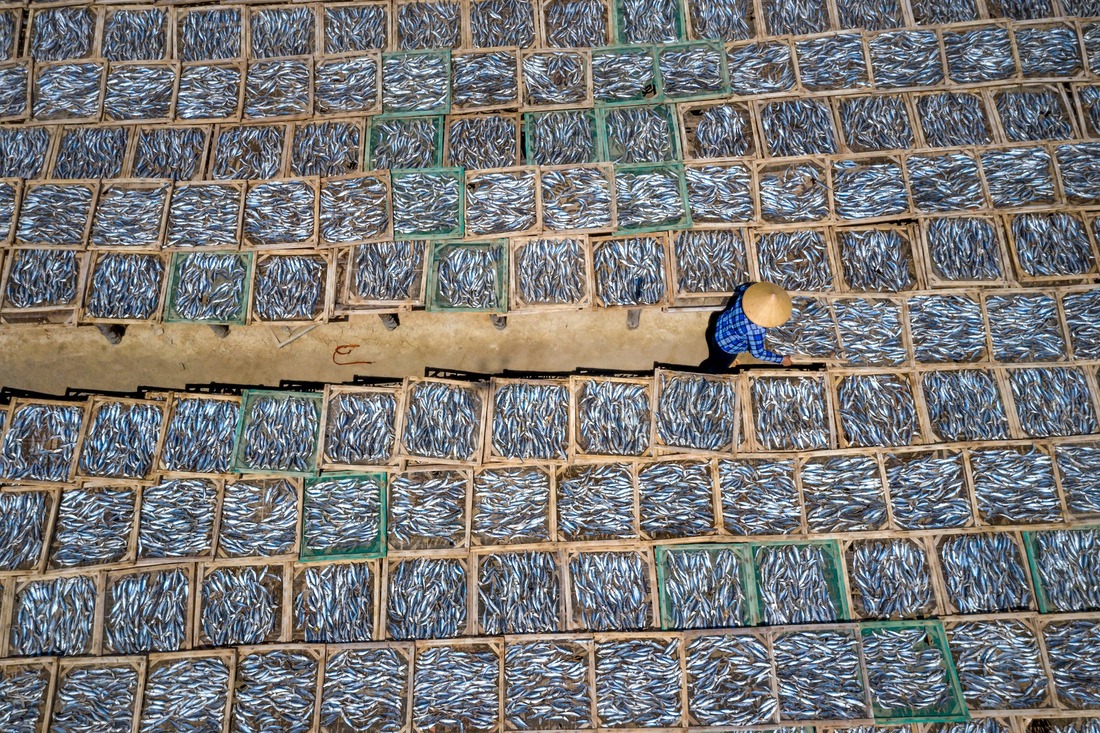
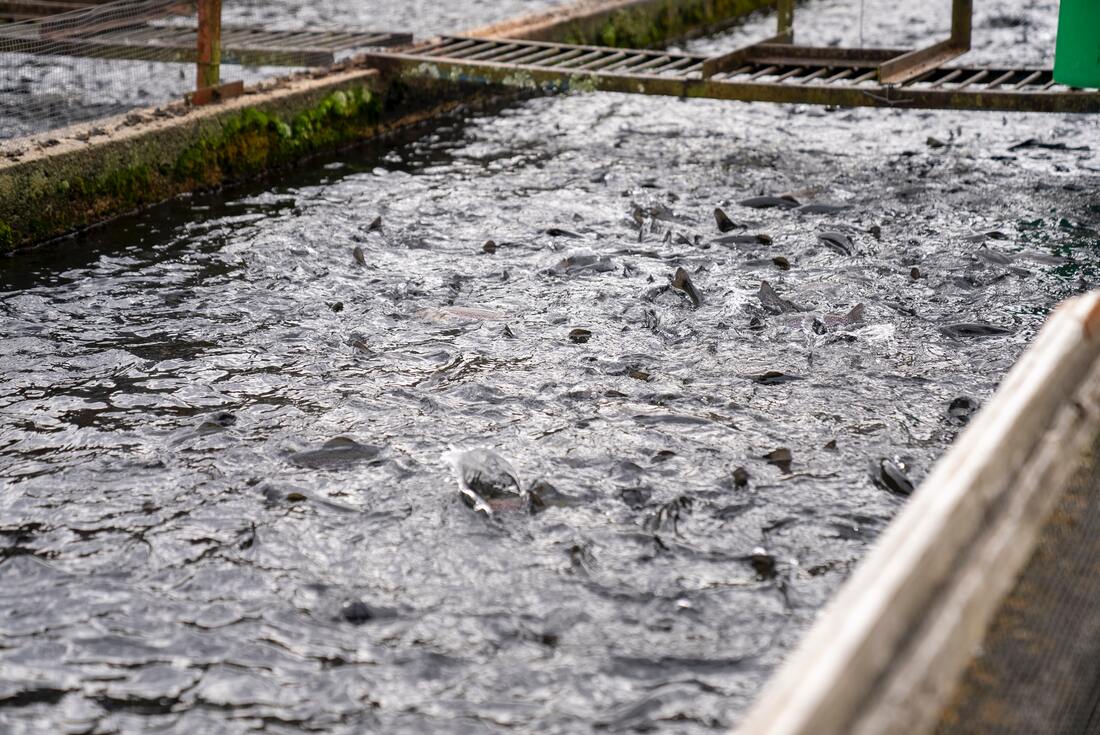
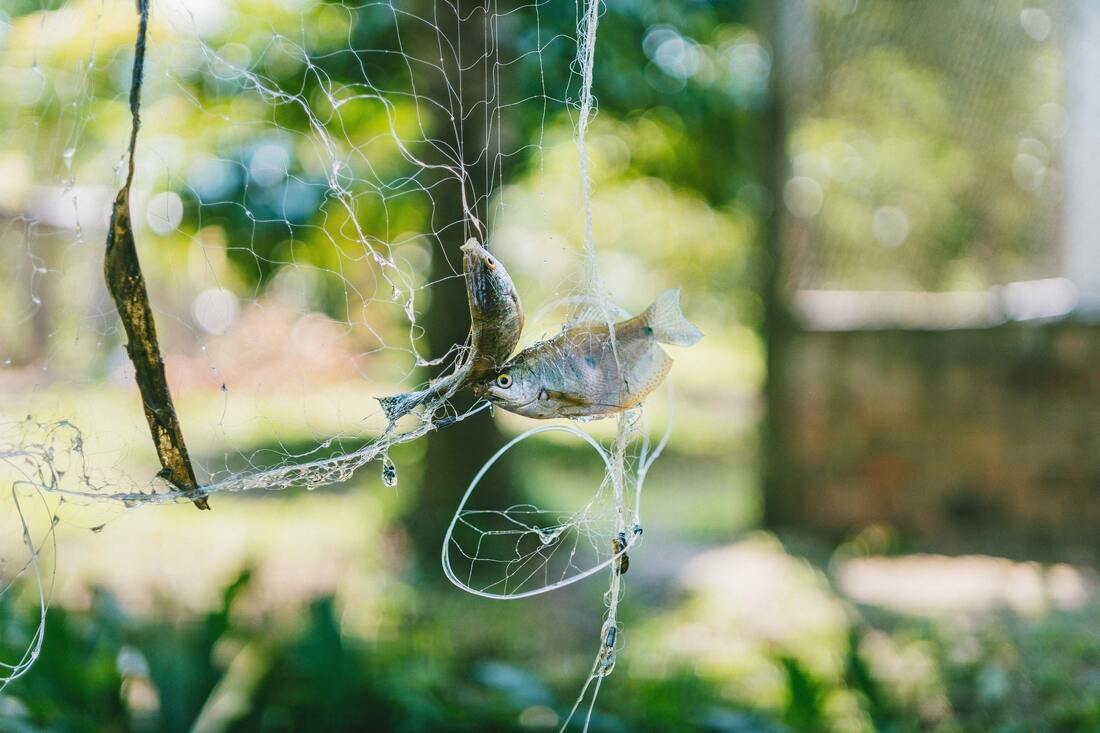
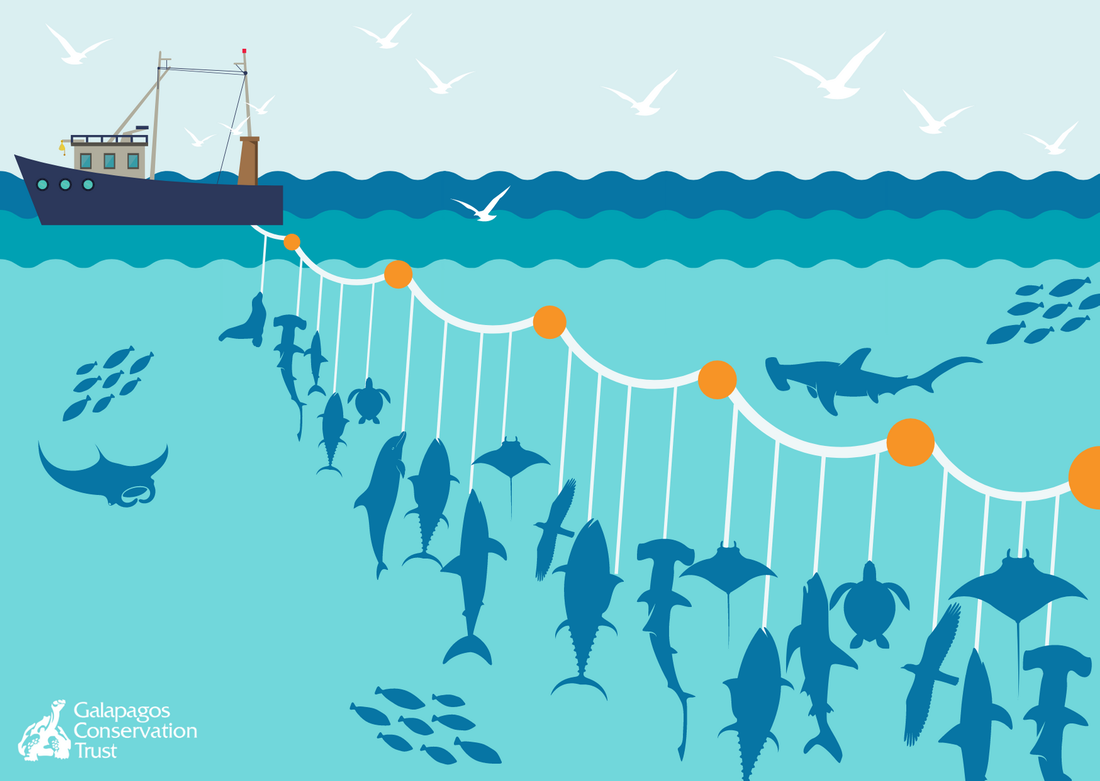
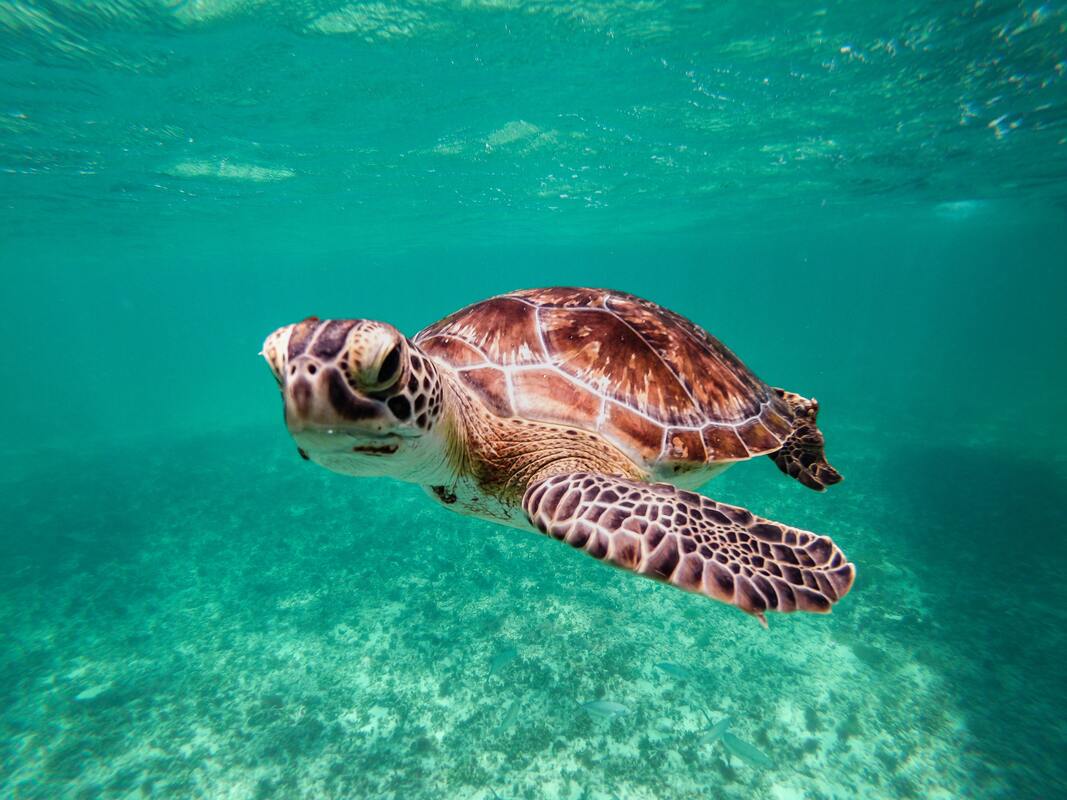
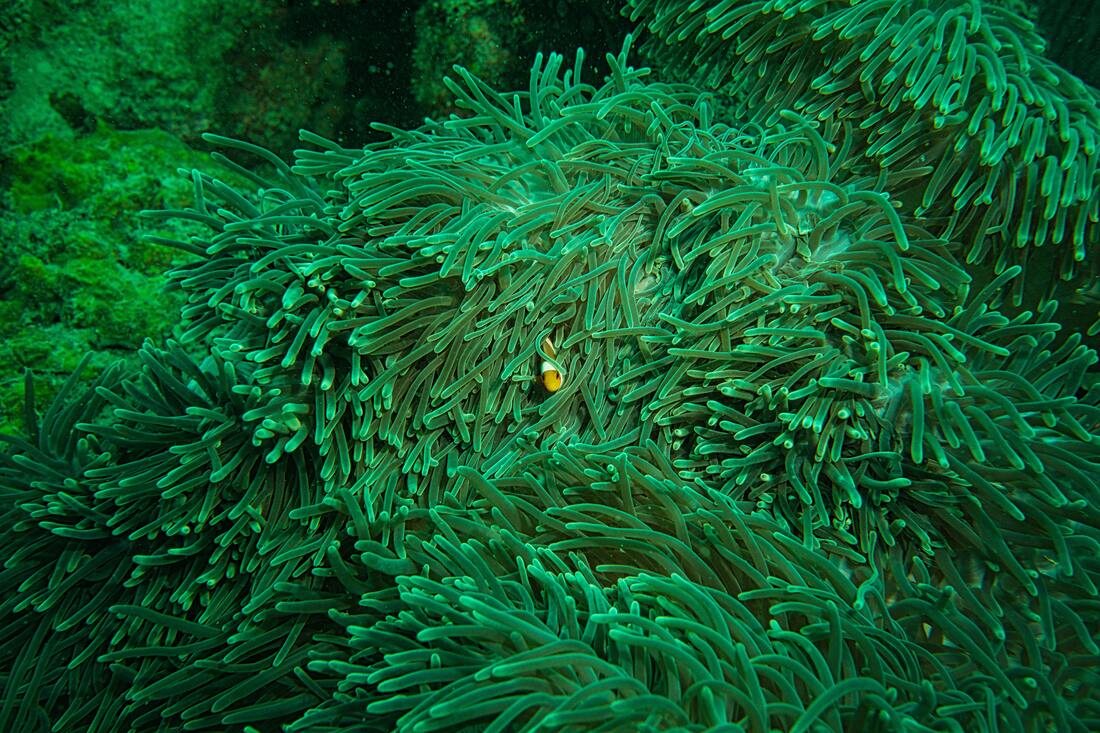
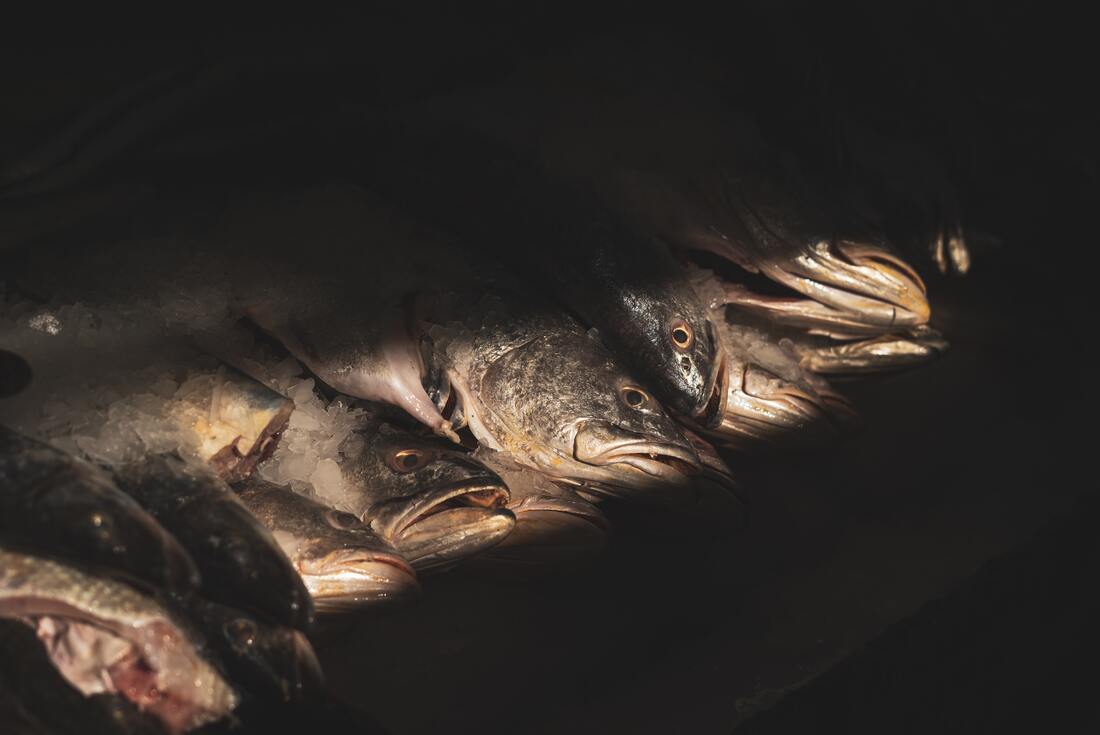
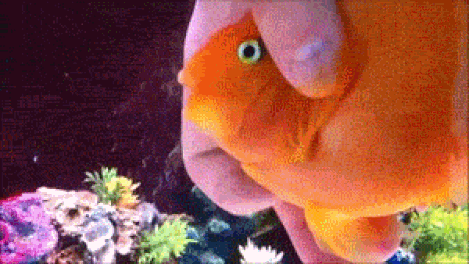
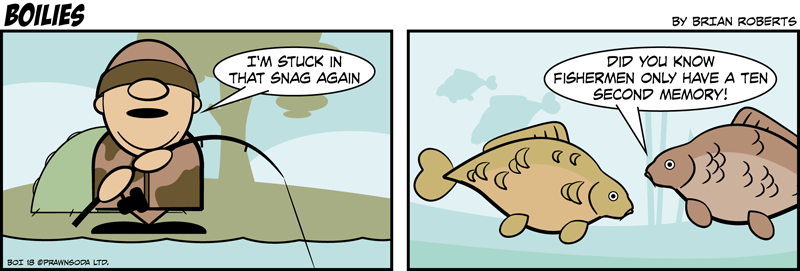
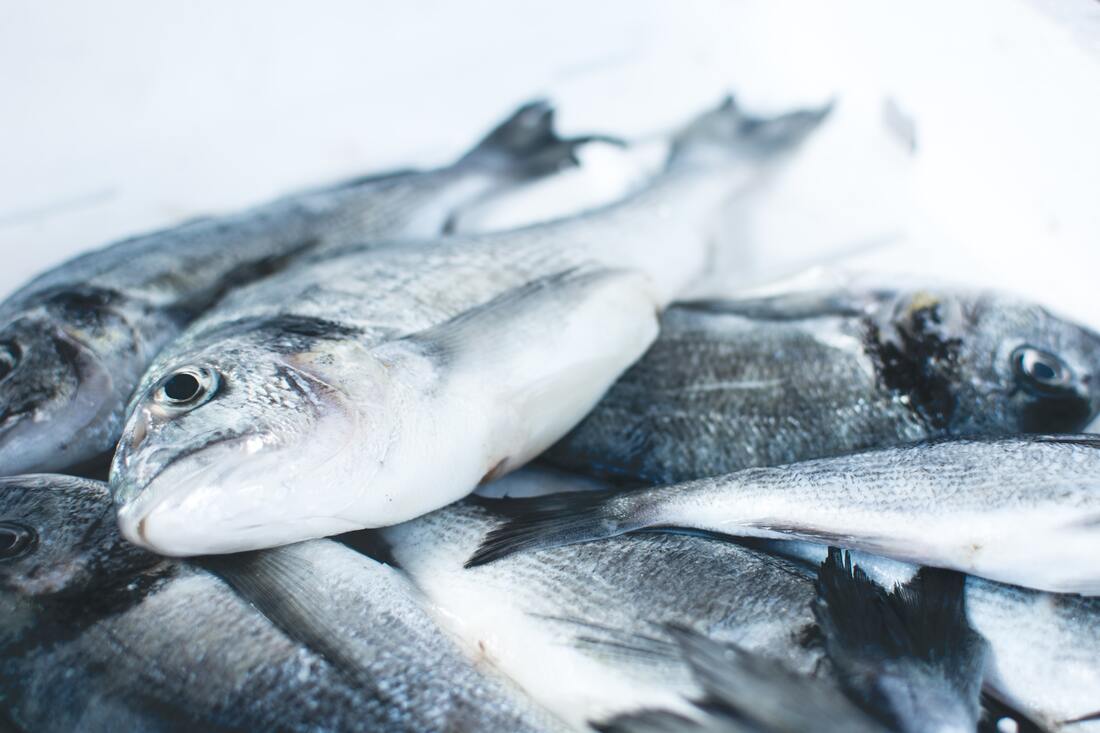
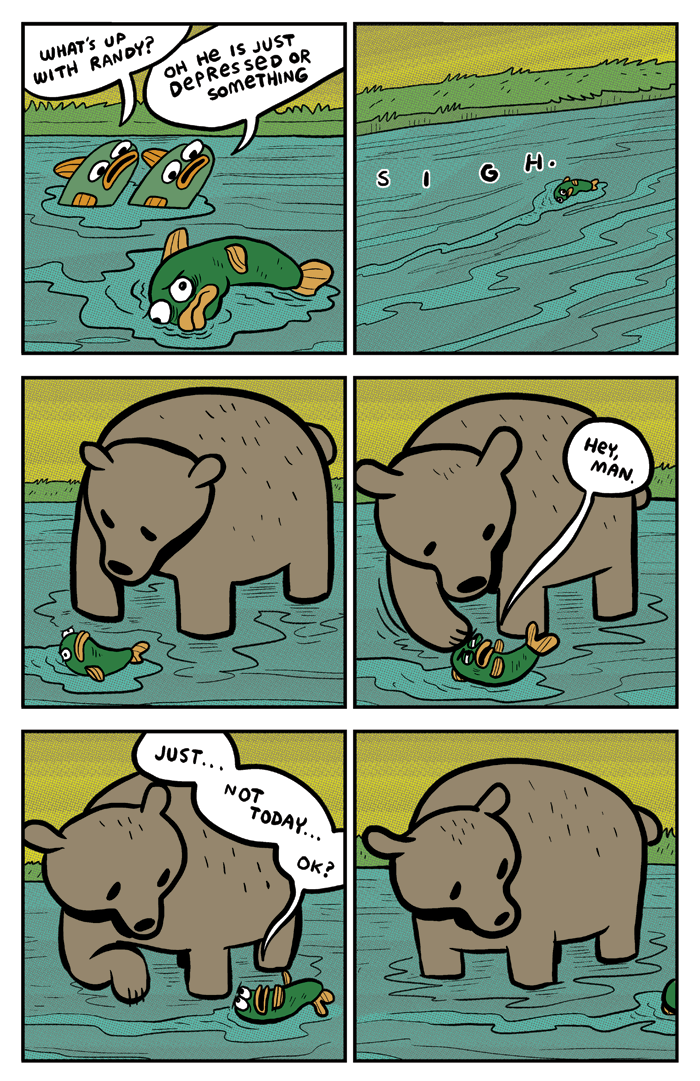
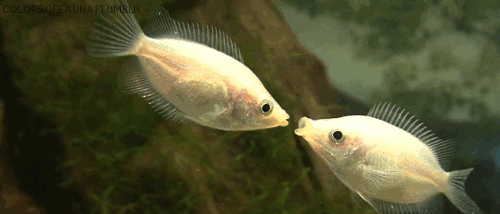
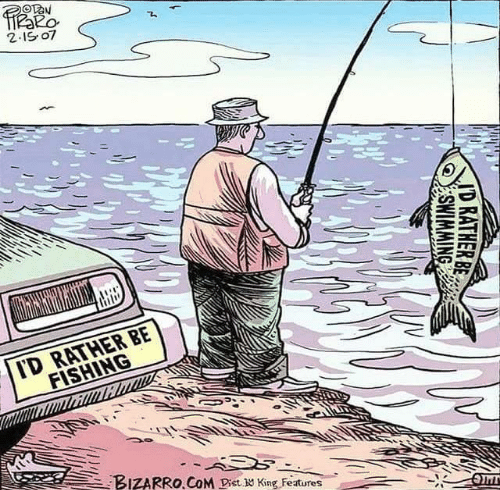
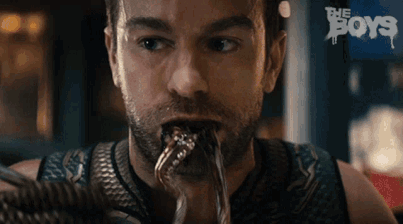
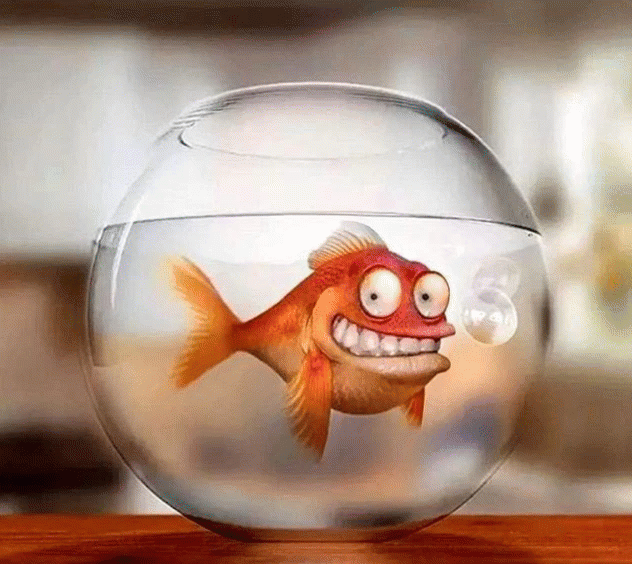
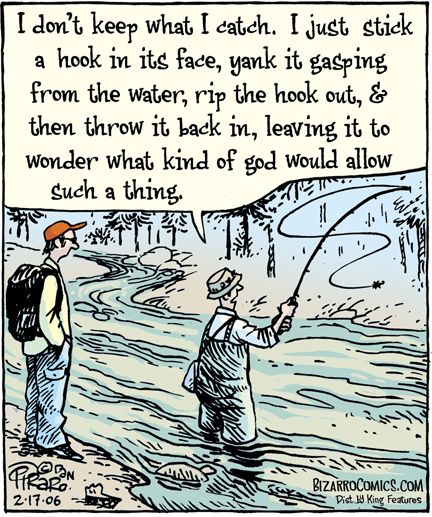
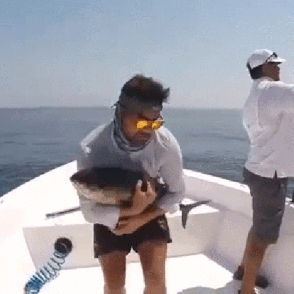
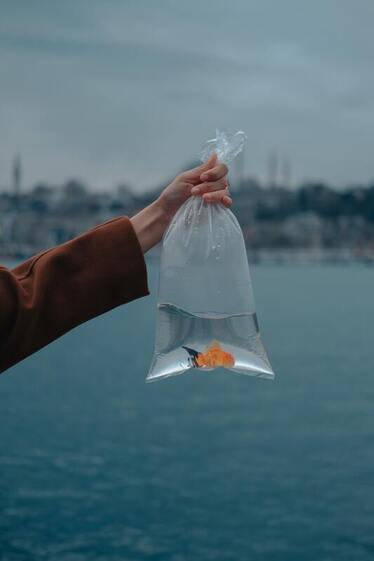
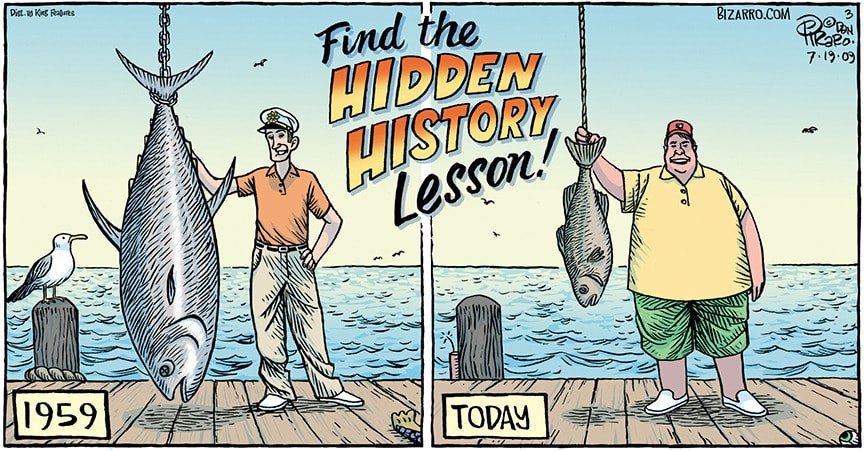
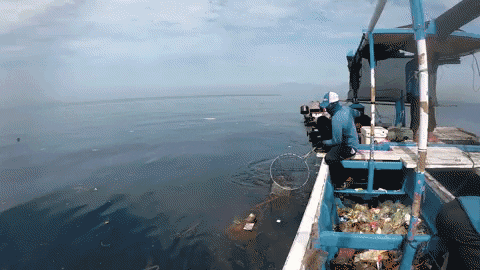
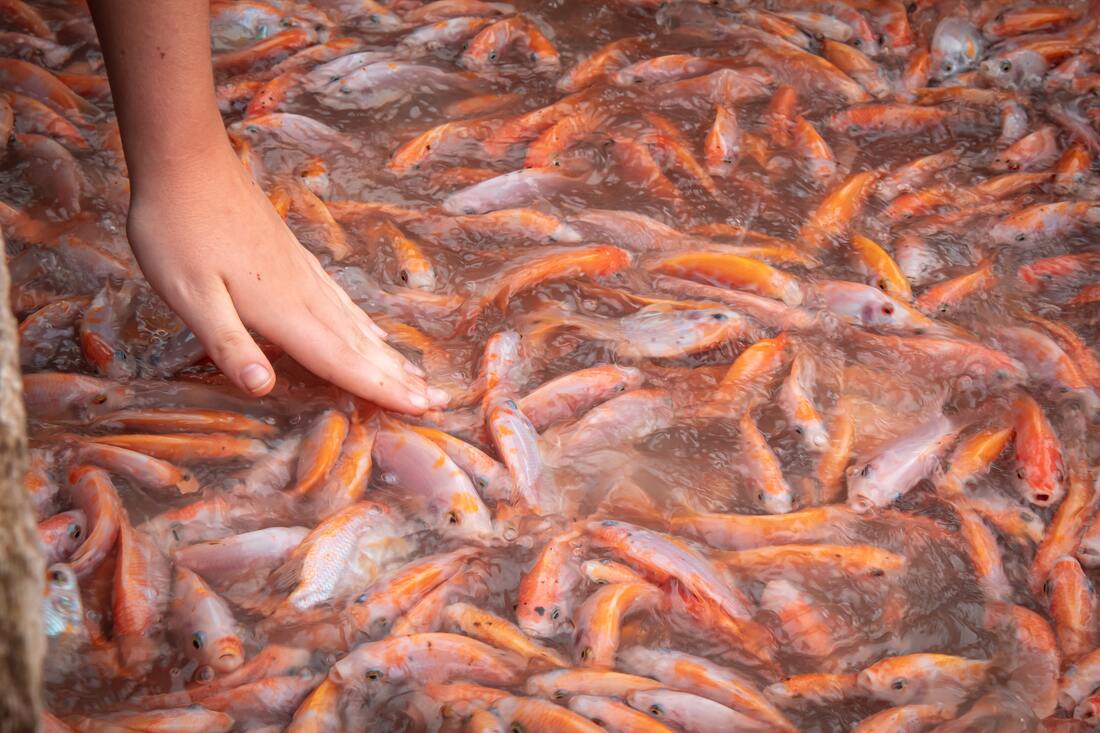


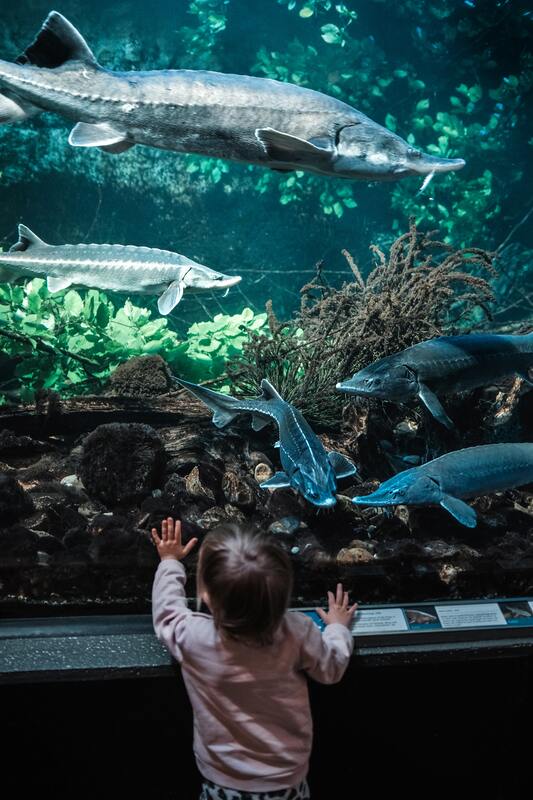
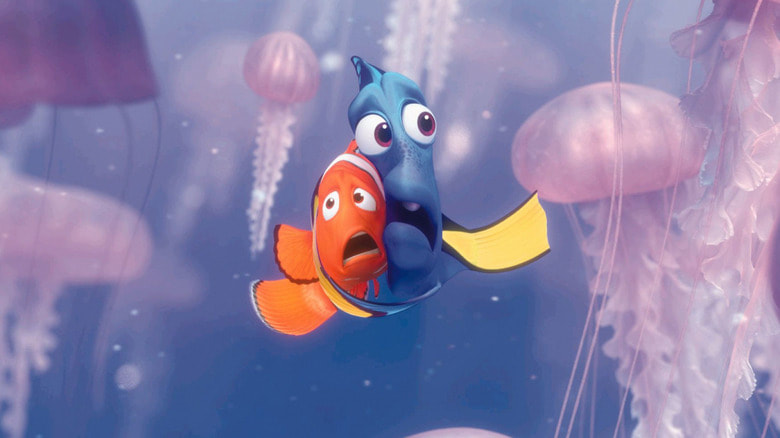
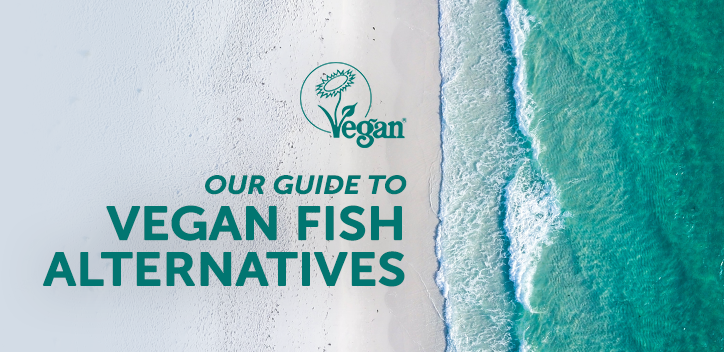


 RSS Feed
RSS Feed